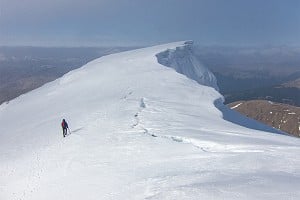
Perhaps it's no surprise that the recent cluster of winter mountaineering accidents in the Scottish Highlands should fill the national media, unleashing a slew of uninformed - in some cases unpleasant - public comment. The impression given is that serious incidents are increasing, and that 'something' should be done. Programmes this week on BBC Radio Scotland and Newsnight Scotland have even debated the merits of regulating hill-going, and restricting access during periods of poor conditions. Is this a credible threat? Prominent members of the outdoor community were quick to fight our corner, and have the advantage of actually knowing something about their subject. Among those to comment on air was David 'Heavy' Whalley. With around 40 years of mountain rescue experience, Heavy's opinions carry some weight. We've compiled this article from his recent blog posts on this issue.
It's nearly a month since four climbers were lost in an avalanche in Glen Coe. Such young lives, full of hope and direction. It's hard to comprehend that someone can be so alive one second then gone the next. Yesterday's news of three dead in an avalanche in the Cairngorms despite great efforts by the Helicopters, Rescue Teams, SAR Dogs and hospitals is all so very hard to take in.
Last year I fell in the Cairngorms helping a walker who was stuck in the goat track and was very lucky to get away with a few broken ribs. Accidents can happen to anyone and even after all these years in the mountains I learn new skills every winter.
Unfortunately the media are quick to jump on the bandwagon of mountain accidents, and the recent Call Kaye programme on BBC Radio Scotland (see BBC iplayer here) was no exception. During such discussions calls are usually made at some point for mandatory insurance and restricting access to the hills.
'Accidents can happen to anyone and even after all these years in the mountains I learn new skills every winter'
The questions asked on the programme were: 'Are Scottish mountains worth the risk? News of rescues, avalanches and tragic accidents in the hills seem a daily occurrence of late and Kaye asks if people are putting themselves in too much danger for a hobby? Our hills, climbs and crags attract people from all over the world, with mountaineers proud of our stunning scenery and the 'most enlightened access laws in the world'. But should more be done to control walking in Scotland and to help keep people safe, should there be more education for climbers, or is the risk part of the thrill?'
The main protagonist in the alarmist 'something must be done' camp was Dorothy Grace Elder, a respected journalist and ex-politician who took no prisoners with her poorly informed views. She called for restricted access to the mountains (however that would be policed?), citing risk to the rescuers and many other sensation-grabbing headlines.
'The media are quick to jump on the bandwagon of mountain accidents'
Unfortunately this programme was seriously flawed by poor research, with repeated use both by Elder and the presenter Kaye Adams of the figure of 52 deaths in the mountains in 2011. This figure formed the basis of Elder's position. But as a past Statistician for the Mountain Rescue Committee of Scotland I knew it was incorrect - for the simple reason that it contains many non–mountaineering fatalities.
In fact there were 21 mountaineering fatalities in 2011 - every one a tragedy, but not over 50! This table makes things clear:
The other 31 fatalities were non-mountaineering incidents that happened to be attended by Mountain Rescue. These cover a wide range of scenarios. A non-mountaineering incident is one where the casualty or missing person is not involved in climbing, scrambling or hill walking. It is important to understand that this category relates to the activity that the casualty or missing person was involved in when the incident occurred, not the type of terrain or height above sea level. Non-mountaineering incidents may still require the skills, resources and capability of a mountain rescue team to deal with. They may take place in poor weather, on a mountainside, in a cave or in terrain only accessible using climbing techniques. Non-mountaineering incidents may be searches, rescues or both, and include: water sports (kayaking, fishing and swimming); fell running; triathlon; mountain biking; pony trekking; hangliding, parapenting and paragliding; aircraft crashes; people reported missing from residential/nursing homes, hospitals, etc; work-related incidents such as forestry, game-keeping etc; and assistance given to individuals, local communities or emergency services during severe weather etc.
Now if Kaye Adams or Dorothy Grace Elder had actually read the Mountain Rescue report for 2011 then they would have found all that out. The 2011 figures and report are on the Scottish Mountain Rescue website, and well worth a look - but do read it all before passing judgement please!
'Despite the recent media hype it can actually be argued with some confidence that people who walk and climb in Scotland are much better equipped and informed than they were twenty or thirty years ago'
Also available on the Mountain Rescue Scotland site is a 30-year study Scottish Avalanche Incidents 1980-2009 by Bob Sharp and myself. Though there's extreme variability from one year to the next, the linear trend shows that the number of avalanche incidents attended by MRT, the number of people who die or are injured and the number of people involved in avalanches each year are all actually declining. Despite the recent media hype it can actually be argued with some confidence that people who walk and climb in Scotland are much better equipped and informed than they were twenty or thirty years ago. As a result they are better prepared for dealing with a wide variety of mountain hazards both in summer and winter, including avalanche risk.
Tragic though mountain deaths are, every week we lose so many to drink in drugs in the UK. Yet it seems to be an accepted fact that this happens, day in day out. The government is pushing for a fit society and to get people out for the health benefits involved; yet we had to spend an hour on a programme defending our sport!
I was very impressed by the answers on the programme from Cameron MacNeish, John Allan ex Cairngorm MRT Leader, Heather Morning the MCofS Mountain Safety Officer, and various other members of the public. All put forward a compelling case and helped state the case for more education and training but also the element of risk that is inevitable in the mountains.
I have lost over 10 great friends to mountains in my 40 years. To me one death is one too many, and we must do what we can to educate and train people to enjoy the risk of a day in the mountains.
And in Scotland we already do a lot to assist in mountain safety and education. Scottish Mountain Rescue Teams are supported by the Scottish government to the tune of over £300,000 annually, and every little helps. The free Mountain Weather Information Service (MWIS) and Sportscotland Avalanche Information Service (SAIS) are also funded by the government, and greatly help to inform those who go out in the hills. The Mountaineering Council Of Scotland has a Mountain Safety Officer who does so much to enhance mountain safety in Scotland. All these posts and money have been fought for over many years and in these days of cuts we need to ensure they stay in place.
Again I stress that we should not take our eyes off the ball and all those who give Scotland such a joined-up approach to mountain safety and education should keep up the great work. Now is not the time to relax; we must keep pushing new methods and ideas of how to get mountain safety across to the hill-going public.
My thoughts are with all those families and rescuers involved in the recent tragedies. Please be careful in the mountains, read and use all the tools available in assessing conditions and be aware that normally easier areas can still hold considerable dangers.
Mountaineering is a wonderful sport, especially in winter, but there is always risk and unfortunately accidents do happen. We must try to keep these to a minimum; but also keep a sense of perspective.
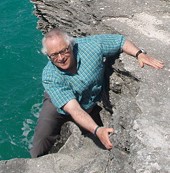
About the author
David 'Heavy' Whalley is one of Britain's foremost experts on mountain rescue. He was a member of RAF Mountain Rescue for 36 years and was Team Leader of RAF Leuchars, RAF Kinloss and Deputy Team leader at RAF Valley in North Wales. He's also spent time working in the Rescue Co-ordination Centre at RAF Kinloss. He was the Senior Team leader at the Lockerbie Disaster and has been involved in over 1000 Mountain and over 80 Aircraft incidents in mountainous areas. He was a member of the Executive of The Scottish Mountain Rescue Committee for over 20 years, including a five-year stint as Accident Statistician and three years as Chairman. He was awarded the BEM, MBE and the Distinguished Service Award for Service to Mountain Rescue. He is an Honorary member of the Torridon and Kinlochewe MRT and Search and Rescue Dog Association Scotland.

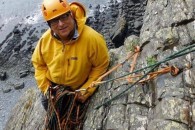

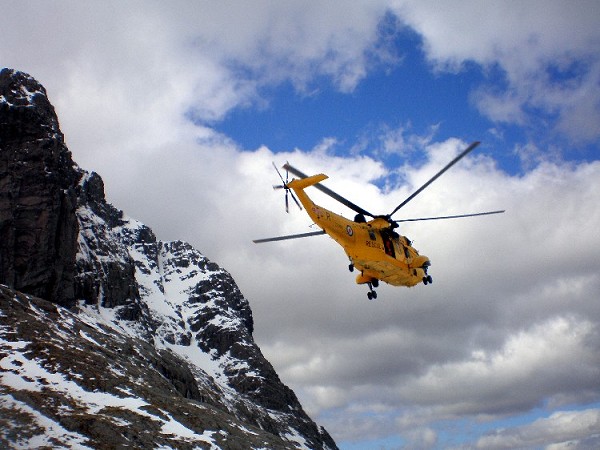
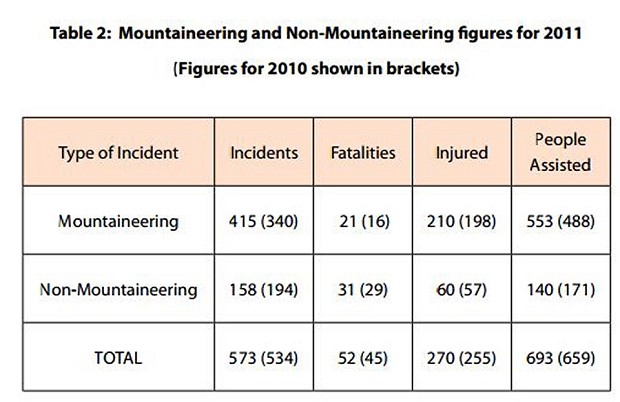
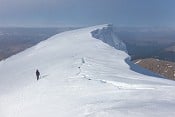
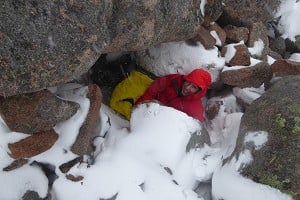
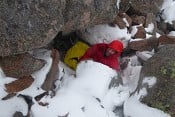
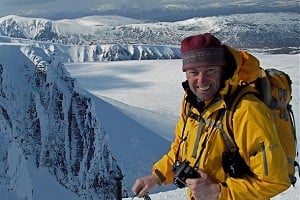
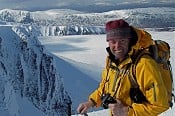


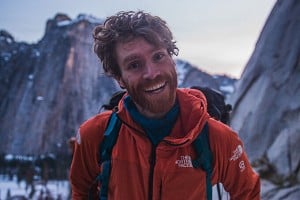
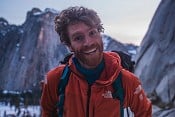




Comments